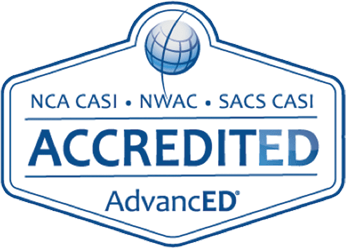Every Enterprise Company Is exploring how they can Integrate Blockchain Technology Into The Fabric Of Their Organizations. Many Have Already Begun...
How About Your Organization?
According to a report from PwC, 84% of executives surveyed said their companies are “actively involved” with blockchain technology. The way to conduct business is evolving and Blockchain is playing a big part of this movement. In a recent World Economic Forum report predicts that by 2029 11% of GDP will be stored on blockchains or blockchain related technology
So What Does This Mean For You And Your Company?
With blockchain there is no more guesswork, no more hiding in the shadows, no more obscurity, less complications, easier transactions, etc..
To help move that vision forward, we at Kingsland University developed a program for busy executives designed to provide you with the knowledge you need to understand the impacts, threats, and opportunities blockchain technologies may pose to your industry or company.
Kingsland is fully accredited by the Southern Association of Colleges and Schools (SACS-CASI), and has been acknowledged as “Innovator Of The Year” by the International Business Awards just last year in 2019.
Over 1,517+ business leaders and executives have trusted us as their go-to source to understand the impacts of blockchain in their industry.
Kingsland is the Global leader in Blockchain education.
In addition to conducting executive level training programs across North America, Kingsland was also brought in to provide Blockchain training to some of the most prestigious organizations in the world such as the (OECD) Organisation for Economic Co-operation and Development where the governments of 36 member states with market economies work with each other. Kingsland has also worked with more than 70 non-member economies to promote economic growth, prosperity, and sustainable development along with the governments of Australia, the Bahamas, Anguilla, Bermuda, Mauritius, Singapore, and other nations looking to understand how to benefit from the implementation of blockchain technology.
Business Disruption From Blockchain Is Real But Is It An Opportunity Or A Threat?
Let’s take a look at the international conglomerate, Honeywell International, for keen insight as to how they are successfully utilized blockchain technology…
Within their Honeywell Aerospace unit, they have deployed blockchain technology to disrupt and improve the market for used aircraft parts. Whereas, previously, transactions would take two phone calls, four emails, numerous quotes, two days to close, and an untold trail of paperwork (the sale of larger parts would take many more weeks)…
With blockchain their partners simply locate a part and purchase items – instantly. In turn, they’ve made it easier for their consumers to verify certifications, origin of parts, and have increased transaction speed by a whopping 7,000%!
This powerful blockchain-backed online marketplace allows their more than 800 partners and distributors (including Dassault Falcon Jet Corp. and StandardAero Aviation Holdings Inc.) to trade parts in real-time.
Some will ask, “What about compliance and regulations?”
It’s a valid concern – as many industries (aircraft-parts included) are heavily regulated, requiring special certifications and proper documentation. Yet here’s the catch: blockchain quickly finds the history of a used part, previous owners, origin, everything at the click of a button.
From a consumer benefit standpoint, the real end result of this blockchain breakthrough is that it’s made flying planes much safer for all of us by allowing parts to be sourced quickly and accurately.
Sathish Muthukrishnan, Chief Digital & Information Officer at Honeywell Aerospace said, “The goal was to digitize transactions. To make it frictionless, and remove human interaction, I need a technology that will create trust. That’s where blockchain came in.”
How much do you think increasing transaction speed from a few weeks to a click of a button has been worth to Honeywell?
Here Are The Numbers...
The latest numbers from May 2019 show that by making user-interface and transactions much smoother, blockchain technology helped bring in a windfall $2,000,000.00… in less than 3 months after launching the technology.
Their target sales by year-end are north of $10,000,000.00. Incredible!
Now, Honeywell isn’t the only giant company raking in the profits from blockchain.
The world’s #1 retailer by sales – Walmart – is a huge believer in blockchain technology. Having filed 50+ blockchain patents for everything from tracking shipments to operating drones. They’ve even partnered with IBM Food Trust to improve food safety through easier-to-track blockchain tech, which has helped with food safety, reduction of food borne illnesses. Now whenever these mishaps happen, Walmart can understand when and where in the supply chain they occured, allowing them to remedy the problem quickly and save costs.
Likewise, IBM’s own blockchain efforts are supported by some 1,500 experts, with the company participating in more than 500 blockchain projects.
Alibaba (the Chinese e-commerce giant) is blazing the blockchain path with 90 patents filed for blockchain technology as of September 2018 – allowing them to more easily track, verify, and ship their ecommerce products.
The list goes on and on…
If you and your organization are ready to gain a deeper understanding of the explosive potential of blockchain technology, enabling you to assess which business problems it can solve, the Kingsland University Executive Fast-Track Program is the perfect fit for you. We will provide you with a blueprint for a blockchain strategy that addresses specific challenges and roadblocks within your own organization.
Inside Kingsland University’s Award-Winning Blockchain Executive Fast-Track Program...
The Fast-Track Executive program is comprised of 8 specific Modules designed to make the information easily digestible and immediately applicable for your use..
The curriculum:
Module 01:
TRUST & THE BLOCKCHAIN
In this session, we look at the history of blockchain and provide a non-technical overview of blockchain technology. We introduce decentralized ledgers, the premise of ‘trustless’ transactions and consider some of the potential security, legal and risk issues that arise from the technology through applied blockchain case studies.
• Blocks, chains, hashes & public key cryptography
• Consensus, Double Spending, 51% attach
• Type of blockchains, ICO’s, stable coins, security tokens
• Blockchain for business: use cases & categories
Module 02:
CRYPTOCURRENCIES
This session provides executives with an introduction to cryptography and the mechanics of the cryptocurrency market and the altcoin, or ‘token’, economy. It introduces initial coin offerings (ICOs) as a method of capital-raising via the blockchain and looks at some of the regulatory and compliance risks associated with ICOs.
• Emergence of digital currencies and blockchain
• Digital currency as a form of money
• Crypto assets & exchanges at a glance
Module 03:
SMART CONTRACTS & DAPPS
In this session, we introduce Ethereum and its role in facilitating ‘smart contracts’. We look at the value and role of smart contracts and discuss decentralized apps (Dapps). Through case studies, we consider the scope and limitations of blockchain
technology.
• Smart contracts and Ethereum
• Smart contract theory and application
• Decentralized Application
Module 04:
BLOCKCHAIN INDUSTRY USE CASES
This session analyses the ways in which blockchain disrupts specific industries as use cases. For these industries expected to face disruption, we discuss threats and opportunities for various companies and organizations. Potential strategies to mitigate risks and ways blockchain can be leveraged for competitive advantage will be discussed.
• Blockchain in banking and finance
• Five blockchain industry use cases, deep dive
Module 05:
THE FUTURE & MORE USE CASES
This session considers how blockchain will transform business processes and what future business models may look like in a decentralized world.
• Future of bitcoin & blockchain
• Sector challenges and emerging trends
• Three use cases in Data Marketplace, IOT & Healthcare
Module 06:
GOVERNMENT REGULATION
In this session, we introduce the challenge of governance and regulation in the blockchain sector, and discuss how executives can minimize the impact of lagging governmental regulation whilst leveraging the potential of blockchain technology.
• Regulatory climate
• Governments and blockchain
• Case studies in global regulation
Module 07:
GOVERNANCE, DISTRUPTION & ADOPTION
This session considers some of the key challenges faced when leading blockchain project teams and a leadership methodology developed by Kingsland to address the specific needs of blockchain project teams.
• Governance models
• Disruption or hype
• Leadership, adoption, and organizational impact
Module 08:
BUILDING BLOCKCHAIN SOLUTIONS
In this session, we discuss implementation: how to develop a business case for your blockchain project, infrastructure and HR considerations, deploying your project and potential project costs.
• Determining applicability & technology plan
• Designing the architecture
• MVP development & field trial
• Product implementation

Meet Your Lead Instructor...
Alex Lightman
Alex Lightman is founder and CEO of Token Communities Ltd., and Blockchain Commodities Exchange. He has acted as a strategic advisor to 20+ companies in the Blockchain space.. He is a co-founder and member of then steering committee of the Digital Asset Trade Association (DATA). Lightman is one of the most prolific thought leaders in the blockchain space. He is the first columnist for ICO Crowd magazine, a best-selling author in seven categories, and has been called upon to be a keynote speaker at 20+ Blockchain conferences. He’s been called a “modern renaissance man” and a “super-intelligent polymath” in the Blockchain community.
Educated to be a thought leader in technology and policy at MIT and Harvard’s Graduate School of Government, Lightman has won four global awards for technology and a national award as one of America’s ten most innovative educators. His undergrad was at MIT where he created his own major in Enterprise Engineering within the Dept. of Civil and Environmental Engineering and his graduate school was at both Harvard’s Kennedy School of Government and MIT’s Sloan School of Management.
Finally, he is the author of Brave New Unwired World (Wiley, 2002) and Reconciliation: 78 Reasons to End The US Embargo of Cuba, and the coauthor (with Brett King, the #1 Fintech influencer) of Augmented: Life In The Smart Lane. His latest books How To Be Good At Crypto and Food Security via Clean Energy and Blockchain Technology are recognized best sellers in the blockchain community.
Happy Graduates. Employed Graduates.

Kingsland University has successfully delivered global Award-Winning Education programs to some of the world’s most respected companies, universities, goverment agencies, and not-for-profits, amassing over 150,000 students worldwide.


